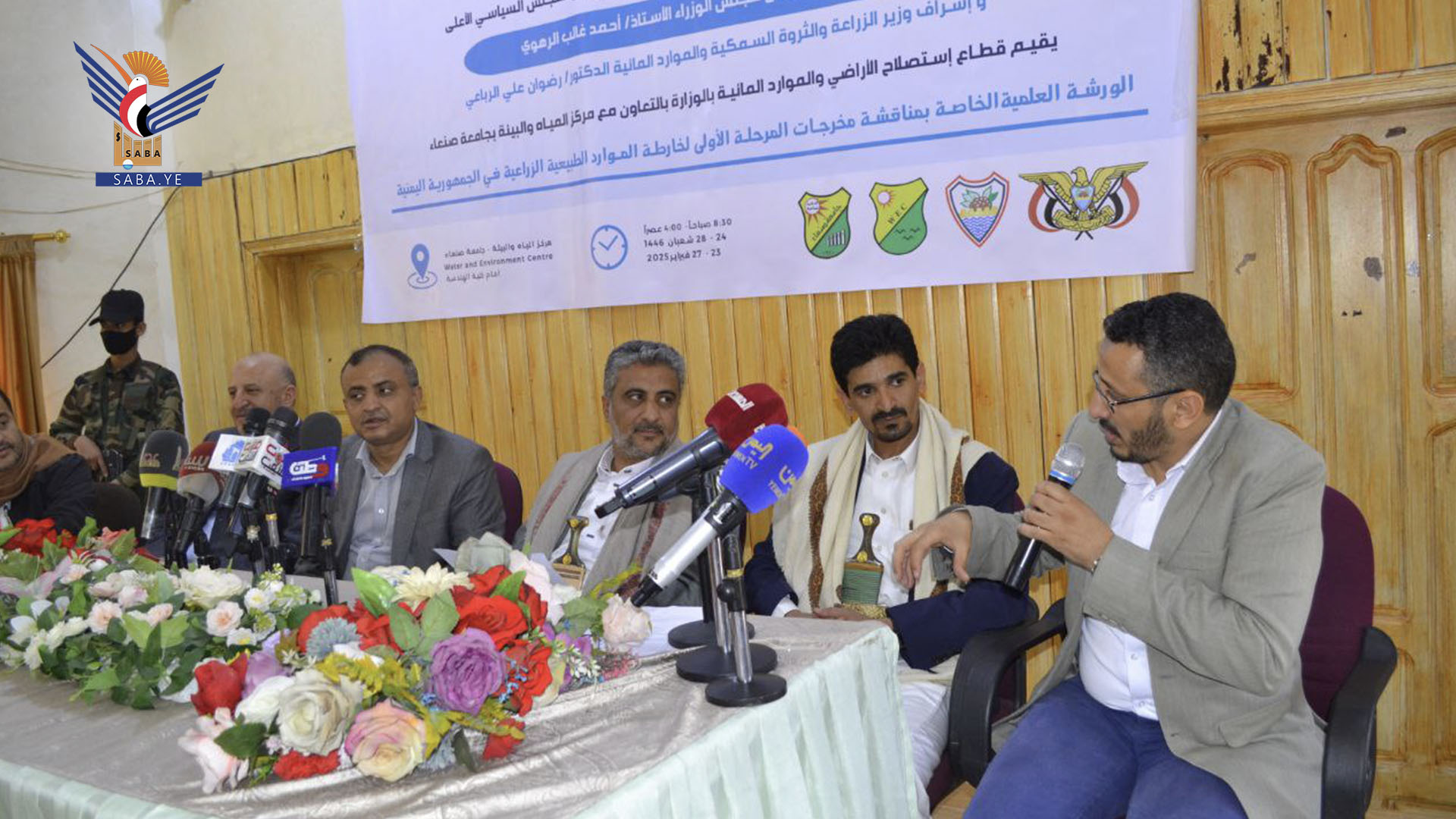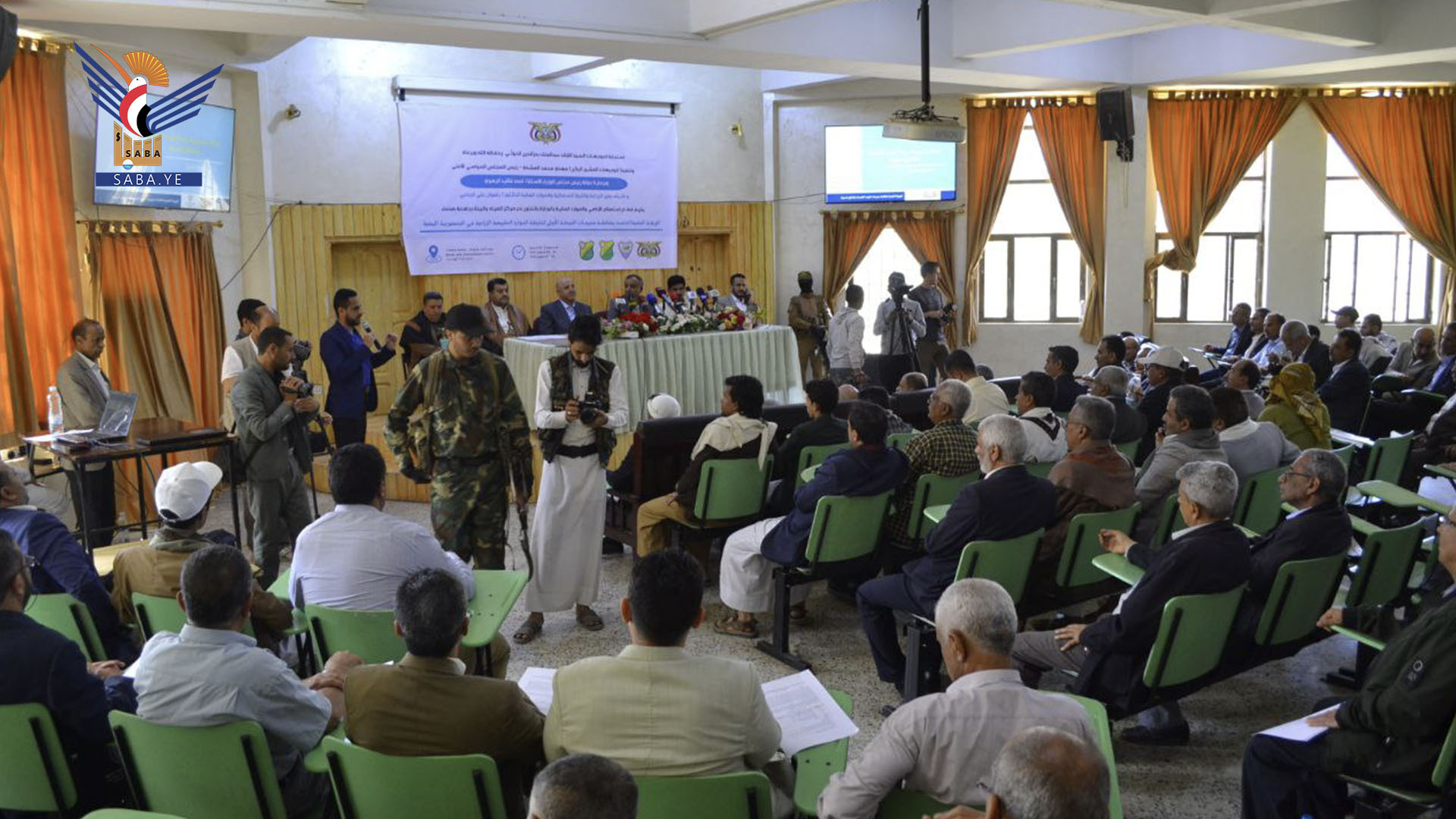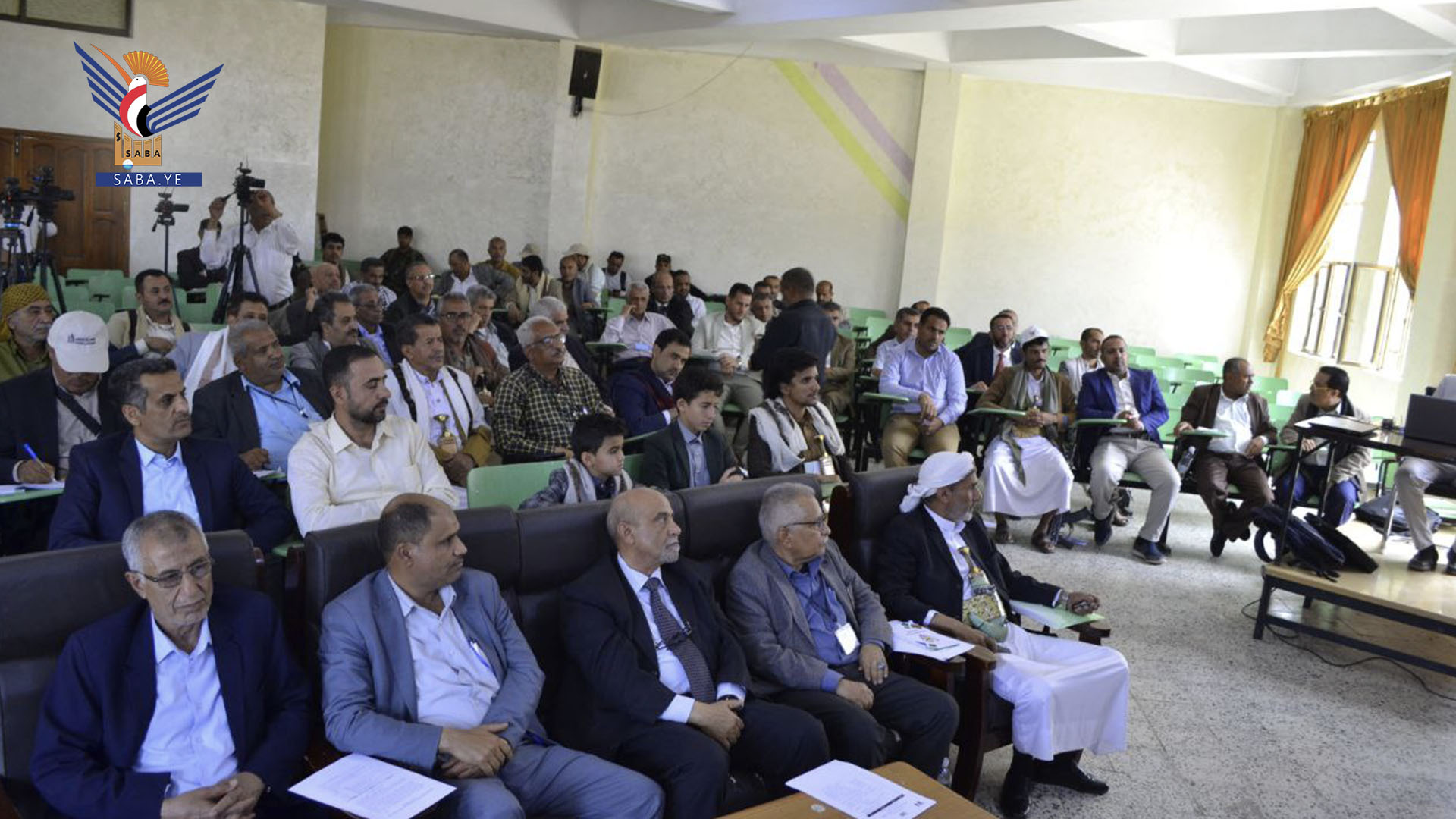
Sana'a - Saba:
A five-day scientific workshop commenced in the capital Sana'a on Monday to discuss the outcomes of the first phase of the agricultural natural resources map of Yemen.
The workshop, organized by the Irrigation and Agricultural Land Reclamation Sector in collaboration with the Water and Environment Center at Sana'a University, brings together researchers, academics, and specialists from various Yemeni institutions.
The workshop aims to assess soil and water resources, land use, crop composition, vegetation cover, and climate in selected districts, creating a comprehensive database of available land resources.
Deputy Prime Minister Mohammed al-Madani emphasized the workshop's importance in discussing scientific research and applying it across relevant ministries to reduce imports.
He highlighted the government's focus on value chains and reducing the import bill, noting the connection between natural resources mapping and developmental and human aspects.
Al-Madani revealed plans to introduce specific pepper and tomato varieties to reduce imports and empower local farmers. He also outlined plans to develop value chains for 1,400 imported food items, highlighting Yemen's progress in achieving garlic self-sufficiency.
Minister of Agriculture, Fisheries, and Water Resources Dr. Radwan al-Rubai, stressed that the workshop aligns with national directives to utilize agricultural resources, particularly land and water. He emphasized the importance of these studies in enhancing food security and achieving self-sufficiency.
He praised the cooperation between the Land Reclamation Sector and the Water and Environment Center and urged the involvement of experts and consultants in the process. He highlighted the importance of studies on Tihama Plain and eastern regions, vital agricultural areas.
Dr. al-Rubai considered the natural resources map a crucial tool for understanding environmental diversity and determining suitable crops. He urged collaboration between academics and the ministry in policy development and research.
The Rector of Sana'a University emphasized the workshop's role in guiding development efforts and promoting research-based agricultural development.
Director of the Water and Environment Center Dr. Taha al-Washli highlighted the center's role in conducting scientific studies for value chains and promoting rain-fed agriculture.
Dr. Mohammed al-Mashriqi presented the study's scope, objectives, and methodology, while other researchers presented findings on environmental characteristics, water and soil resources, land use, vegetation cover, and crop composition.
A five-day scientific workshop commenced in the capital Sana'a on Monday to discuss the outcomes of the first phase of the agricultural natural resources map of Yemen.
The workshop, organized by the Irrigation and Agricultural Land Reclamation Sector in collaboration with the Water and Environment Center at Sana'a University, brings together researchers, academics, and specialists from various Yemeni institutions.
The workshop aims to assess soil and water resources, land use, crop composition, vegetation cover, and climate in selected districts, creating a comprehensive database of available land resources.
Deputy Prime Minister Mohammed al-Madani emphasized the workshop's importance in discussing scientific research and applying it across relevant ministries to reduce imports.
He highlighted the government's focus on value chains and reducing the import bill, noting the connection between natural resources mapping and developmental and human aspects.
Al-Madani revealed plans to introduce specific pepper and tomato varieties to reduce imports and empower local farmers. He also outlined plans to develop value chains for 1,400 imported food items, highlighting Yemen's progress in achieving garlic self-sufficiency.
Minister of Agriculture, Fisheries, and Water Resources Dr. Radwan al-Rubai, stressed that the workshop aligns with national directives to utilize agricultural resources, particularly land and water. He emphasized the importance of these studies in enhancing food security and achieving self-sufficiency.
He praised the cooperation between the Land Reclamation Sector and the Water and Environment Center and urged the involvement of experts and consultants in the process. He highlighted the importance of studies on Tihama Plain and eastern regions, vital agricultural areas.
Dr. al-Rubai considered the natural resources map a crucial tool for understanding environmental diversity and determining suitable crops. He urged collaboration between academics and the ministry in policy development and research.
The Rector of Sana'a University emphasized the workshop's role in guiding development efforts and promoting research-based agricultural development.
Director of the Water and Environment Center Dr. Taha al-Washli highlighted the center's role in conducting scientific studies for value chains and promoting rain-fed agriculture.
Dr. Mohammed al-Mashriqi presented the study's scope, objectives, and methodology, while other researchers presented findings on environmental characteristics, water and soil resources, land use, vegetation cover, and crop composition.

